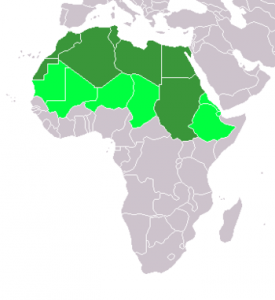
Photos of soldiers shaking hands with protestors and graffiti covered walls announcing unity are slowly leaking out of Egypt. The uprisings in Egypt that call for the end of President Hosni Mubarak’s reign are looking promising.
Vice President Joe Biden has said that Mubarak should not step down because he is not a dictator, but the reformers in Egypt would disagree with that. Over his three decades of complete control, Mubarak has ruled with a policy of not allowing opposition, all the while breeding his son, Gamal, to be his successor. That sounds like something a tyrant would do. These protests, however, have disrupted Mubarak’s plans to appoint his son as ruler. Instead, he has designated his intelligence chief. He has also offered to issue reforms, but protestors aren’t interested in what he has to say. The quarter of a million people marching through Cairo are a good indication of this.
Will Mubarak’s overthrow benefit the United States, though? It is true that he is a dictator, but he is not a threat to America, so we must ask, “what will happen after he is gone?” Well, if history repeats itself, as it often does, we may be faced with a situation similar to that of Iran. After the Shah Mohammad Reza Pahlavi was ousted from Iran, his successor allowed the Ayatollah Khomeini to consolidate his power. Khomeini, with his anti-Western rhetoric and stance, was much more of a threat than the Shah, who President Carter actually let come to America. In Egypt, the equivalent of Khomeini would be the Muslim Brotherhood, which has a strong presence in the uprising. An anti-American leader could affect us economically by manipulating oil in the Middle East, so this is something to consider. The opposite of what happened in Iran may also take place if Egypt is provided with a clean slate. A benevolent ruler that could please both his people and other countries could come into power. In any case, the one thing that the United States should not do is help a specific person take charge. Augusto Pinochet and Fulgencio Batista are great examples of why the United States should stay out of the whole ordeal. Everything I’ve said so far assumes a regime change is in order, but we could also back Mubarak, keeping the economy stable and not risking letting a new, less-than-friendly leader take charge.
Tunisia, on the other hand, could use some foreign assistance. Its former dictator, Zine El Abidine Ben Ali, who was recently forced out, still looms over the country like an ominous shadow in the form of his party — the Constitutional Democratic Rally. But the Tunisian people have room for tremendous improvement if they can create a democratic system of government and elect a popular leader.
I say this because Tunisia is already a Westernized Muslim country, where women reportedly enjoy rights similar to those found in the United States, but where alcohol remains banned. A democratically elected leader would complete Tunisia’s process in becoming a country like those of Europe.
Economic support from foreign nations is necessary to keep the country from falling into utter chaos, however. This presents nations like the U.S. and the U.K. with a great opportunity to shape a country with democratically recognized standards. This seems like a better alternative than backing a dictator that may very well turn on us — the fiasco with Saddam underscores my point.
The unrest we’re seeing in Egypt and Tunisia has spread to Algeria, Mauritania and Yemen. Self-immolations eerily reminiscent to those during the Vietnam War and 10,000 man marches have been taking place over the past weeks. The protestors want change, and they are most likely going to get it (though hopefully not from Obama).
The democratic superpowers of the world, namely the United States, England, Japan and France — and I say that tentatively — should capitalize on this unrest and attempt to ensure something good comes from it. There is promise for Northern Africa yet. Let’s just hope that Secretary of Defense Robert Gates isn’t caught shaking hands with any North African generals in the near future.





